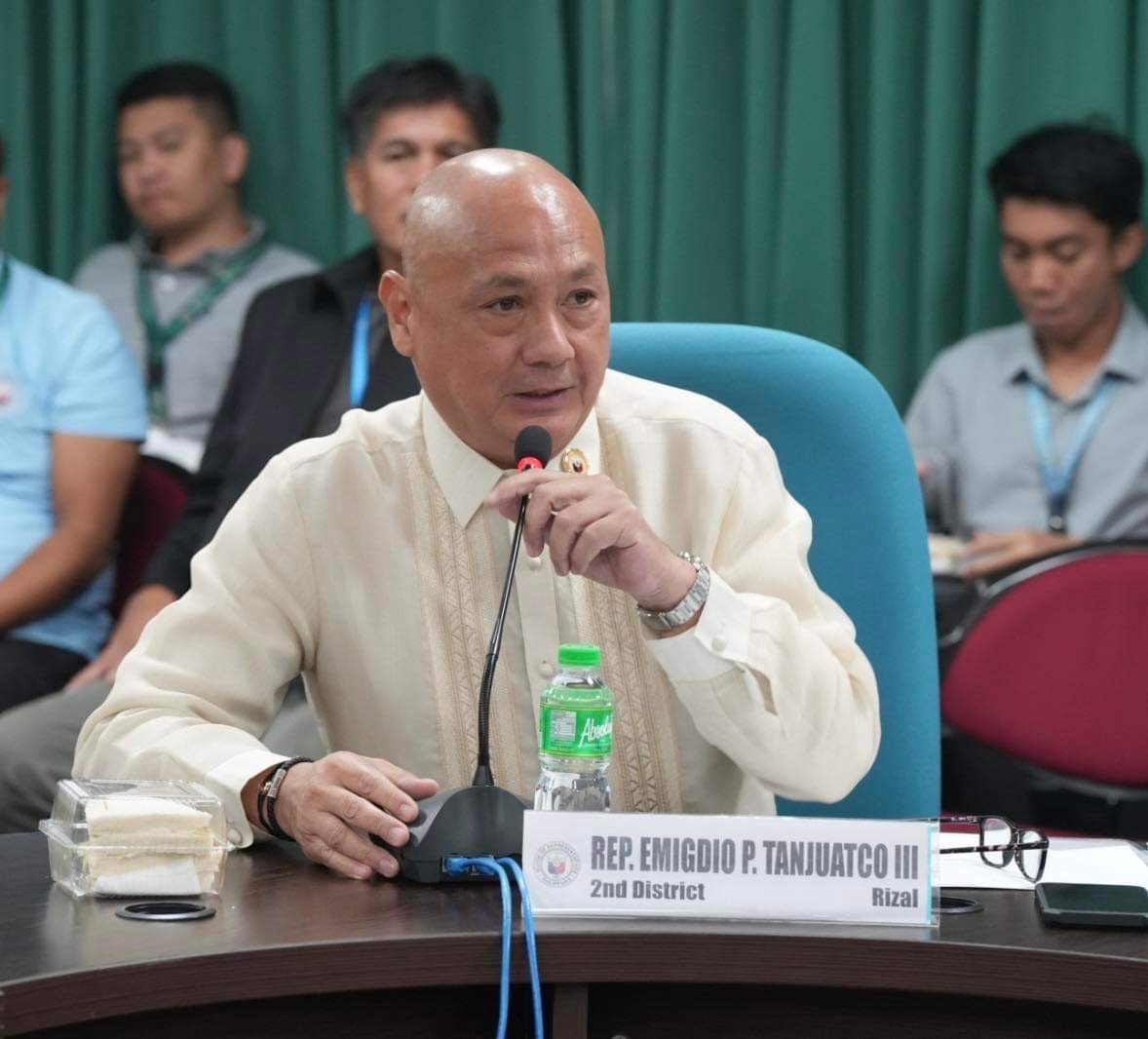Savings and peace of mind: Solon makes case for reusing Smartmatic VCMs in 2025 polls
At A Glance
- Rizal 2nd district Rep. Emigdio "Dino" Tanjuatco III has echoed calls for the Commission on Elections (Comelec) to consider reusing its existing vote-counting machines (VCMs) in next year's mid-term polls.
- Tanjuatco said such move will save the government close to P8 billion, and--perhaps more importantly--address the concerns that lawmakers have with Miru Systems Co. Ltd., Comelec's chosen contractor for the May 2025 elections.
- The solon is a member of the House Committee on Suffrage and Electoral Reforms.
 Rizal 2nd district Rep. Dino Tanjuatco (Facebook)
Rizal 2nd district Rep. Dino Tanjuatco (Facebook)
A member of the House Committee on Suffrage and Electoral Reforms has echoed calls for the Commission on Elections (Comelec) to consider reusing its existing vote-counting machines (VCMs) in next year's mid-term polls.
According to Rizal 2nd district Rep. Emigdio "Dino" Tanjuatco III, such move will save the government close to P8 billion, and--perhaps more importantly--address the concerns that lawmakers have with Miru Systems Co. Ltd., Comelec's chosen contractor for the May 2025 elections.
Tanjuatco's fellow House members had earlier suggested the use of the 97,000 VCMs previously bought from erstwhile local systems provider Smartmatic.
"First and foremost, the P18-billion contract between the Comelec and Miru Systems Co. Ltd. does not comply with the terms of reference (TOR) of the automated election system (AES). I was present during the first demo of Miru's machines in the Comelec, where I witnessed the deficiencies first hand," Tanjuatco said.
Specifically, Tanjuatco had questioned the integrity of vote-counting as he personally saw that Miru's prototype machine read crumpled, marked and torn sample ballots during the February demo.
The Rizal lawmaker had likewise decried the railroading of the contract-signing despite mounting calls for the Comelec to first look into the controversies surrounding Miru's bid, particularly the South Korean firm's submission of an unused prototype. This isn't allowed by law, solons have pointed out.
Also, the Supreme Court (SC) had ruled that the Comelec committed a grave abuse of discretion when it disqualified Smartmatic from the bidding, making Miru the lone bidder and paving the way for it to bag the contract.
This, despite disturbing reports of incompetence in the elections it had handled in other countries such as the Democratic Republic of the Congo (DRC) and Iraq, among others.
On top of the irregularities hounding the biggest-ever contract awarded by the Comelec since it rolled out automated elections in 2010, it did not help that the current harder times wrought by high consumer prices are squeezing the pockets of households dry.
This is where those billion-peso savings come in. "Instead of spending so much money on an untested AES (automated election system), which greatly risks failing the Filipino electorate, why not reuse the VCMs in the Comelec's possession? These machines are still covered by warranty until next year," Tanjuatco pointed out.
"Reusing these VCMs is a very viable option given the government's present challenges in providing critical funds to support social amelioration, food security and universal health care," added the solon.
For Tanjuatco, the existing VCMs are the most practical solution that can put an end to the flurry of issues being raised against the Comelec-Miru deal.
"The VCMs had been verified to be in working condition, as after retrieval, each VCM was inspected individually and restored to perfect condition, as validated by the Comelec itself," noted the suffrage panel member.
Smartmatic's VCMs also have a track record to speak of, hence will uphold election integrity. For the 2025 elections, the voting machine will be used as an optical scanner, allowing the Comelec to utilize its existing machines.
"The VCM inventory complies with 95 percent of the requirements for the optical scanner functionality, as specified in the AES' TOR. The machines have been tested and they perform well. Only 1.8 percent of these VCMs experienced issues in the past elections, which is better than expected," Tanjuatco said.
"We enjoin the Comelec to heed the call of a growing number of legislators urging the poll body to instead reuse its own VCMs in the 2025 polls. The billions of pesos in savings can bridge the budgetary gaps in essential services that the government is mandated to provide," he further said.